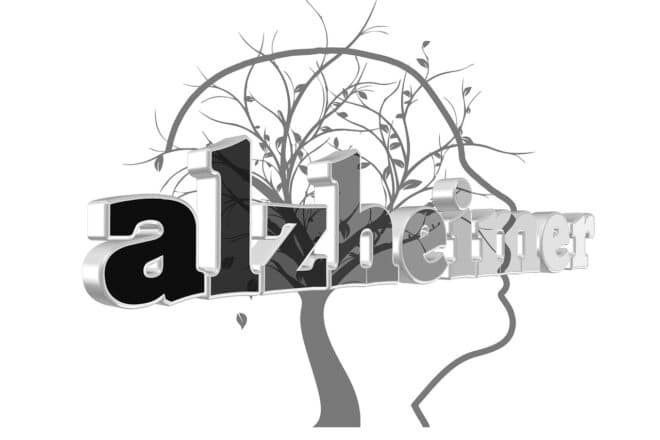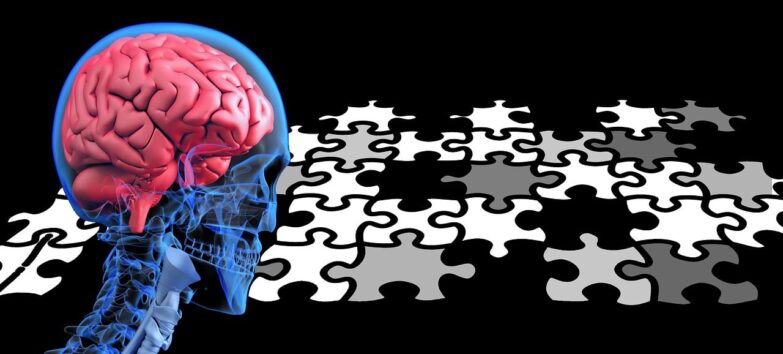This article “The Complete Guide to mental health in older adults” uncovers a pressing issue that frequently goes unnoticed – mental health in the elderly. As we age, we often have to adjust to new health problems, less independence, and changes in our environment, all of which can significantly impact mental health. However, symptoms such as depression may be misunderstood as a normal part of aging, leading to a lack of appropriate care.
The guide discusses the unique mental health challenges faced by older adults, including depression, dementia, anxiety, and more. It emphasizes the importance of understanding these issues and provides insights on detecting warning signs and ways to extend your help. Specifically, it addresses the staggering worldwide growth in the older adult population and their increased risk for mental health issues.
The Importance of Mental Health in Older Adults
It’s crucial to take into consideration the mental health of older adults. There’s a growing prevalence of mental health issues among seniors, mainly because such conditions frequently go unnoticed or are mistaken for typical aging symptoms. Contrary to the misconceptions about mental health in aging, symptoms of depression or anxiety are not necessarily part of the natural aging process. Restrictive access to mental healthcare and the associated stigma further hampers the treatment process. When these mental health disorders remain untreated, they can significantly impact an individual’s quality of life, exacerbate physical health conditions, and potentially lead to other serious consequences like suicide.
Growing prevalence of mental health issues among seniors
the aging populace is rapidly growing. From the years 2015 to 2050, it’s expected that the number of individuals aged 60 and above will double, increasing from about 900 million to approximately 2 billion. In such a vast population, around 1 in 4 older adults experiences mental health issues. This emphasizes the necessity to address mental health concerns as a key component of elder care.
Misconceptions about mental health in aging
Older adults, their families, or even medical professionals may misinterpret symptoms of mental health disorders, like depression or anxiety, as normal manifestations of aging. However, mental health decline is not a typical part of the natural aging trajectory. This misconception hampers the diagnosis and treatment process and, in turn, reduces the successful management of these conditions.
The impact of untreated mental health disorders
Untreated mental health disorders in older adults can exacerbate physical illnesses, impede recovery, and hinder routine self-care activities. This can result in further decline in their overall health status. Moreover, untreated mental health conditions in seniors can have severe consequences, negatively affecting their quality of life and even leading to suicide.
Common Mental Health Issues in Older Adults
There are several common mental health issues that older adults experience. These include depression, anxiety, dementia, Alzheimer’s disease, and substance abuse. Each of these conditions can significantly impact an individual’s wellbeing and quality of life.
Depression
Depression often goes unnoticed in older adults, leading to underdiagnosis. It’s a serious condition causing persistent feelings of sadness, hopelessness, and a lack of interest in activities once enjoyed. It’s not a normal part of aging and should be treated promptly.
Anxiety
Anxiety, though less commonly recognized, is a prevalent condition amongst older adults. It manifests as constant worrying, restlessness, and fears that disrupt daily life. It’s crucial to address anxiety in aged individuals as it can significantly reduce their life satisfaction and overall health.
Dementia and Alzheimer’s disease
Dementia encapsulates a variety of conditions characterized by cognitive decline, including Alzheimer’s disease. Changes in memory, ability to think, and social abilities severe enough to interfere with daily life necessitate attention and appropriate medical care.
Substance abuse
Although often overlooked, substance abuse is another mental health issue that older adults face. Misuse of prescription medication, alcohol, or illicit substances can pose significant health risks and accelerate cognitive and physical decline.

Key Influencers of Mental Health in Older Adults
Various factors influence the mental health of older adults. These include environmental triggers, physical health changes, social isolation, and bereavement, among others.
Environmental factors
Environmental changes such as relocating to assisted living facilities or adjusting to new physical limitations can cause stress and anxiety, thereby negatively influencing mental health.
Physical health changes
As people age, they often encounter a barrage of physical health challenges, including chronic illnesses and diminished physical abilities. These changes can lead to feelings of frustration, depression, and stress, significantly impacting mental health.
Social isolation and loneliness
Many older adults experience isolation and loneliness due to various reasons such as the loss of a spouse, living alone, or minimal contact with family and friends. This lack of social connection can lead to depression and other mental health issues.
Death of loved ones and bereavement
Losing friends and family is a common experience for older adults and can lead to grief that, if not properly processed, can result in depression and loneliness.
Warning signs of Mental Health Problems
It’s important to stay vigilant for warning signs of mental health problems in older adults. These signs may include changes in sleep patterns, constant feelings of sadness or worry, memory and cognitive issues, and alterations in behavior or personality.
Changes in sleep patterns
Both sleep deprivation and excessive sleep can be signs of mental health concerns like depression or anxiety. Individuals might struggle falling or staying asleep, or sleep more than usual.
Persistent feelings of sadness or worry
Long-term despair or constant worrying may indicate the presence of a mental health condition such as depression or anxiety. It might be more serious than simple mood swings or stress.
Difficulty with memory and cognitive abilities
If older individuals struggle with remembering things, concentration, or decision-making, it might be a sign of dementia, Alzheimer’s disease, or another mental health issue.
Alteration in behavior or personality
Mood shifts, emotional instability, or alterations of usual behavior might suggest underlying mental health problems. These could span from irritability, low mood, withdrawal from social activities, to uncharacteristic actions.

The Connection Between Physical Health and Mental Health
The connection between physical health and mental health is two-fold. Chronic illnesses can impact mental health, leading to conditions like depression or anxiety. On the other hand, poor mental health can sometimes lead to neglect of physical health, resulting in additional health conditions.
Impact of chronic illnesses on mental health
The stress of coping with chronic illnesses such as arthritis, diabetes, or heart disease can lead to depression and anxiety– mental health conditions that can disrupt quality of life.
Effect of Poor Mental health on physical wellbeing
Depression, anxiety, and other mental health issues can sometimes result in a neglect of physical health, including ignoring routine medical check-ups, not adhering to medication plans, and surviving on a poor diet. These behaviors can further result in a decline in overall physical health.
Importance of regular health checks
Regular health checks are critical for detecting both physical and mental health conditions early on. Early detection can lead to better health outcomes through timely interventions.
Suicidal Thoughts and Behaviors in Older Adults
Older adults have the highest rate of suicide compared to other age groups. Understanding and recognizing the risks and prevalence of suicide among older adults is therefore critical.
Risks and prevalence of suicide among older adults
The risk of suicide among older adults is a significant concern because they have the highest suicide rate when compared to other groups. The highest rate is recorded in individuals above 85 years old, followed closely by adults aged 75-84.
Identifying suicidal tendencies
Older adults experiencing suicidal thoughts may exhibit signs of depression, talk about wanting to die, and start getting their affairs in order. Recognizing these signs early can save lives.
Addressing and preventing suicide among seniors
Preventing suicide among seniors involves early identification of mental health issues, reducing stigma around mental health, providing easy access to mental health care, and ensuring strong social support systems for older adults.

The Role of Social Connections in Mental Health
Just like in individuals of all ages, social connections play a pivotal role in older adults’ mental health. Isolation and loneliness can negatively impact mental health, making it essential to maintain social relationships and community involvement.
Effects of social isolation and loneliness
Social isolation has been linked to several physical and mental health issues like high blood pressure, obesity, heart disease, weakened immune system, Alzheimer’s disease, cognitive decline, and depression. Companionship and social interaction are vital for senior mental wellbeing.
The importance of maintaining social relationships
Maintaining an active social life can protect against mental health issues. Whether it’s family, friends, or engaging in community activities, social interactions provide emotional support, increase feelings of self-worth, and overall, improve mental health.
Community involvement and engagement
Being involved in the community can significantly improve an older adult’s sense of belonging and purpose. This can increase their mental wellbeing and provide a supportive network for them to rely on.
Approaches to Managing Mental Health Disorders
Managing mental health disorders in older adults can involve various techniques like medication, psychotherapy, alternative therapies, and lifestyle changes.
Medications
Certain medications can help manage symptoms of mental health disorders. However, it’s important that these are given under the supervision of a healthcare professional due to potential side effects and potential for drug interactions.
Psychotherapy
Psychotherapy can provide coping strategies for dealing with mental health issues by targeting the root cause. It can also promote healthier behavior, leading to improved mental health.
Alternative Therapies
Alternative therapies like exercise, meditation, and relaxation techniques can support overall wellbeing and mental health. They can help reduce stress and anxiety, improve mood, and boost cognition.
Lifestyle changes
Changes in lifestyle such as improving diet, ensuring adequate sleep, and engaging in regular physical activity can significantly reduce symptoms of mental health disorders and improve overall wellbeing.
The Role of Caregivers in Supporting Mental Health
Caregivers play a crucial role in supporting the mental health of older adults. Their roles extend beyond just addressing physical needs but also involve recognizing signs of mental health issues, promoting a positive environment, and ensuring they themselves are not overwhelmed by caregiver burnout.
Recognizing signs of mental health issues
Caregivers can help identify early warning signs of mental health problems, ensuring that professional help can be sought promptly for intervention and treatment.
Promoting a positive mental environment
Caregivers can create a mentally stimulating and engaging environment full of positivity for elderly individuals, thereby promoting good mental health.
Caregiver burnout and its effect on seniors’ mental health
Caregiver burnout, marked by chronic physical and emotional exhaustion, can negatively impact seniors’ mental health. Hence, it’s crucial for caregivers to maintain personal wellbeing too.
Resources for Mental Health in Older Adults
There are several resources for the mental health of older adults. These include community programs, helplines, and a wealth of online resources and professional medical services that could provide assistance and guidance.
Support groups and community programs
Support groups and community programs offer a platform for older adults to connect with others going through similar experiences, thereby reducing feelings of isolation and improving overall mental health.
Online resources and helplines
Online resources offer a wealth of information about various mental health disorders, while helplines provide immediate crisis intervention, support, and guidance. They are easily accessible and hence, an extremely valuable tool for promoting mental health in elderly individuals.
Professional medical services
Professional mental health services, ranging from psychologists to psychiatrists, can provide evidence-based treatment options tailored to the unique needs of older adults. These also include geriatric psychiatrists who specialize in caring for older adults with mental health issues.
Remember, aging doesn’t necessarily have to come with declining mental health. By recognizing the importance of mental health in older adults and taking steps to ensure its upkeep, we can pave the way to a more fulfilling elderly life.
